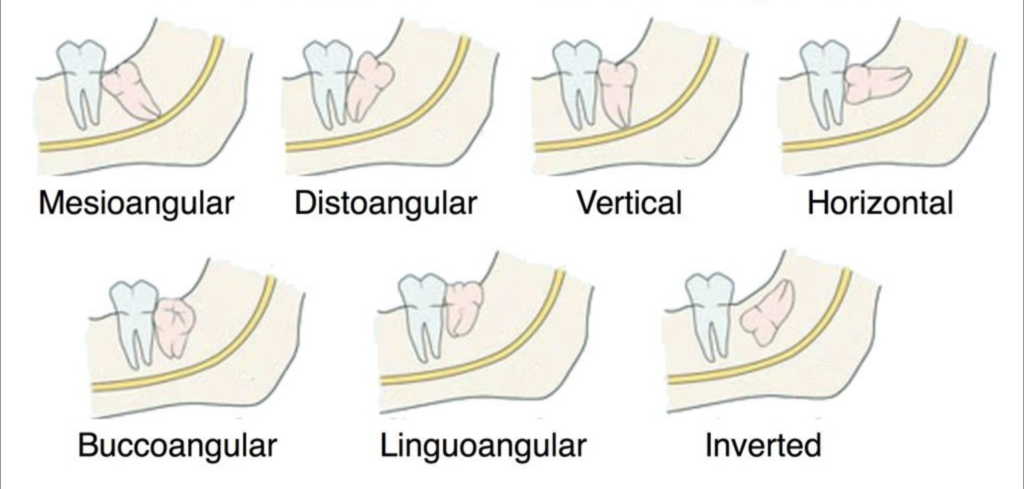The wisdom teeth have longed been an object of fascination and irritation for it has plagued modern humans for the myriad of problems it can cause. As the final set of molars to make their appearance, they arrive at a time when young adults are already navigating various life changes.
While some individuals undergo a smooth and uneventful process as their wisdom teeth emerge properly aligned and fully functional, many are faced with a myriad of issues that are painful and costly. Most choose to have the wisdom tooth surgically removed to eliminate the pain and any further complications.
One common question that frequently arises is whether wisdom teeth can fall out naturally on their own without the need for any intervention. The answer is YES, wisdom teeth can fall out naturally on their own. However, it is relatively rare.
In this article, we will explore the topic of wisdom tooth and understand the complications associated with their growth. Most importantly, we will address the query that has intrigued many: can a wisdom teeth fall out on its own?
Anatomy of a Wisdom Teeth
Understanding the anatomy of a wisdom teeth can shed light on how they grow and the potential issues that can arise when they make their appearance during late adolescence or early adulthood.
First of all, it is important to know where they are located. Positioned at the back of the mouth, on each side of the upper and lower jaws, the wisdom teeth are situated far away from the incisors, canines, and premolars; this makes them harder to reach and particularly challenging to clean properly.
Like all teeth, the wisdom teeth consist of several layers that contribute to their functionality and resilience. The outermost layer is the enamel, a remarkably strong substance that protects the tooth from wear and tear, as well as from the erosive effects of acids and bacteria.
Beneath the enamel lies the dentin, a dense and sensitive tissue that forms the bulk of the tooth’s structure. The dentin provides structural support while also containing tiny tubules that transmit sensations such as hot or cold temperatures to the nerve-rich innermost layer, known as the dental pulp.
The pulp is akin to a heart as it houses the blood vessels, nerves, and connective tissues, acting as the vital life force of the tooth by supplying it with nutrients and oxygen. It is also responsible for transmitting sensations such as pain and temperature.
As seen, the makeup of a wisdom teeth is the same as other teeth, with the difference being its location and the period where it emerges.
Problems About Wisdom Teeth

Wisdom teeth were originally meant to help early humans bite through fibrous plants and meat. However, due to evolutionary change and the shift to softer diets, he human jaw has become smaller over time. As a result, there is often not enough space in the jaw to accommodate these additional molars properly. This lack of space can lead to various problems, such as impaction, where the wisdom teeth cannot fully erupt and remain partially or entirely trapped within the jawbone or gum tissue.
This results in various dental problems including:
- Susceptibility to infection and decay: Partially erupted wisdom teeth create pockets around them, making it difficult to clean adequately. These pockets can trap food particles and bacteria, leading to gum inflammation (gingivitis) and an increased risk of infections (pericoronitis).
- Crowding:Wisdom teeth can exert pressure on neighhboring teeth as they attempt to erupt, leading to dental crowding. This can cause shifting and misalignment of the existing teeth, potentially undoing the effects of previous orthodontic treatments.
- Pain: The eruption of wisdom teeth can cause pressure and discomfort in the mouth, jaw, and surrounding areas. This discomfort can vary from mild to severe and may be accompanied by headaches and earaches.
You may be interested in: Does It Actually Hurt To Get a Tooth Pulled?
Due to the potential dental problems associated with wisdom teeth, dental professionals often recommend their removal, especially if they are causing pain, impacting neighboring teeth, or leading to other oral health issues. Regular dental check-ups, including X-rays, are crucial in monitoring the growth of the wisdom teeth to weed out any potential problems at an early stage.
But can a wisdom teeth fall out naturally on its own without the need for an intervention?
Falling Out On Its Own
We are all conditioned to think that the removal of a wisdom tooth requires one to undergo a surgery where the tooth is surgically removed by a oral surgeon or dentist. The truth is that under the right conditions, a wisdom tooth can fall out on its own. Here are some of the reasons that can cause your wisdom teeth to become loose and fall out on its own:
- Periodontitis: Pericoronitis is a condition where the gum tissue around a partially erupted wisdom tooth becomes inflamed and infected. It can cause pain, swelling, and difficulty in opening the mouth. In some cases, damage to the wisdom tooth and the surrounding gum can cause the tooth to loosen from the gum.
- Physical trauma or injury: Most of the physical trauma are caused by contact sports such as basketball or football. Common consequences of dental trauma include chipped, cracked, or fractured teeth, dislodged teeth (luxation), and avulsed teeth (complete tooth knocked out from its socket).
However, it is important to note that the vast majority of wisdom teeth do not fall out on their own. More commonly, wisdom teeth experience complications, such as impaction, misalignment, or crowding, which can lead to various dental problems. In such cases, an intervention, typically in the form of an extraction by an oral surgeon, is necessary to address the issues and prevent further complications.
Pulling Out a Loose Wisdom Teeth
If you have a loose wisdom tooth, it is not advisable that you pull it out on your own. While pulling out a loose tooth might seem like a straightforward task, it’s crucial to follow the correct procedure to avoid complications and potential injury. As such, it is recommended that you visit a dentist for an assessment of the wisdom tooth.
Pulling out a loose wisdom tooth on your own can be risky and is generally not recommended. This is due to its location (being at the back of the teeth) as well as its size. The process can be painful and may lead to complications, such as infection or damage to neighboring teeth and tissues. Thus, always consult a professional on the proper way to remove it. They can also provide you with appropriate pain relief and aftercare instructions to ensure a smooth recovery.
Concluding Thoughts
While some lucky individuals may have their wisdom teeth emerge properly aligned and functional, most people require dental intervention to address the challenges posed by these molars. Dental professionals often recommend wisdom teeth extraction when complications arise to prevent future problems and safeguard overall oral health.
The notion of wisdom teeth falling out naturally on their own is a fascinating topic that has intrigued many. While it is theoretically possible for a wisdom tooth to become loose and eventually fall out without intervention, such occurrences are exceptionally rare.
In the end, the journey of wisdom teeth varies for each person. As such, it is important to maintain regular dental visits to ensure that your wisdom teeth is handled with care and expertise.
Wondering if your wisdom teeth needs to be removed? Check out this quiz!







